How can you tell if you’re self-aware or not?
The problem is…If you’re not self-aware, then you might think that you are self-aware, (even though you’re not self-aware enough, to know that you’re not self-aware).
Confused?
Studies have shown for years, including a recent study from Harvard, that while most people think they are self-aware, in actuality, only 10-15% of people indeed are ‘self-aware’.
Since it’s difficult for most people (myself included) to look at themselves objectively, we’ve put together a list of common traits shared by those who are highly self-aware.
If you’re not already practicing most of these awareness tips then you’re probably not as self-aware as you may think you are, and you’re definitely not as self-aware as you could be.
In this article we’ll also explore expert opinions and a wide range of diverse perspectives on self-awareness.
Let’s Dive In.
Signs That You’re Becoming More Self-Aware –
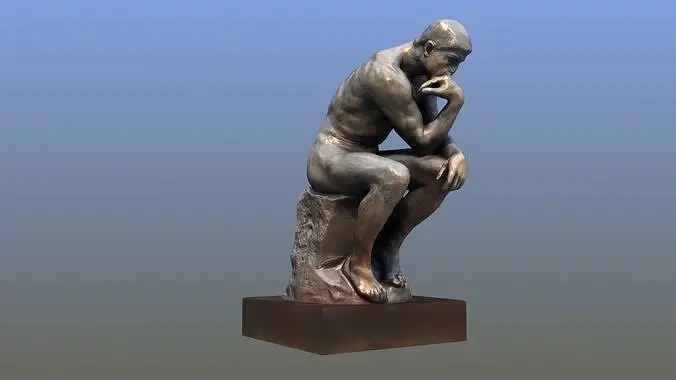
1. You Spend Time Thinking About Your Thought Processes
The experts at PositivePsychology have found that those who spend time getting to know their thought processes and thought patterns (how and why they think the way that they do) are more able to adapt to new situations, and more likely to improve their overall level of self-awareness.
2. You Understand the Importance of Taking Time to Reflect
Kirsten Meneghello has a Juris Doctorate in Law, and is currently CEO of Illumination Coaching LLC, which specializes in leadership and team development consulting services. Needless to say Kirsten knows a thing or two about the effects of self-awareness on leadership.
In Forbes Magazine, Kirsten writes that taking time to reflect will allow you to separate from your own perception of a situation, into an objective observer. In other words, reflecting gives you the opportunity to look back at a situation, not in the 1st person as you experienced it, but from a more objective 3rd person perspective.
Executive leaders at Harvard also mirror Kirsten’s understanding of reflection and self-awareness.
According to the Harvard Business Review, “the most useful reflection involves the conscious consideration and analysis of beliefs and actions for the purpose of learning.”
Author Jennifer Porter goes on to explain the specifics of how reflection gives the brain an opportunity to “”pause amidst the chaos””, and to untangle and sort through observations and experiences. Pausing to reflect gives you time to consider multiple possible interpretations, and creates a learning experience for future ongoing growth.
3. You Practice the Skill of Mindfulness
Those who are self-aware understand mindfulness, and use it on a daily basis (often sub-consciously).
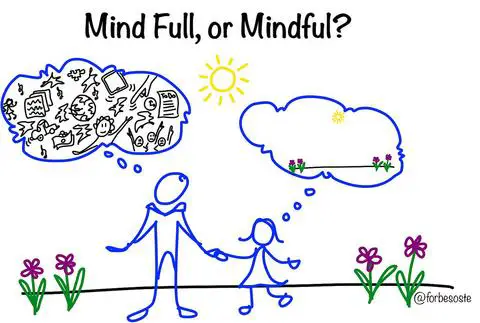
What is mindfulness? Mindfulness is the practice of controlling your thoughts and being ‘present’ in the moment (with-out any distracting thoughts).
If you’re not able to control your thoughts, then you’re emotions are likely to get the best of you (often with-out your conscious awareness). Imagine what life would be like if you could control your thoughts, and emotions.
A study conducted by Dr. Elisabeth S. Blanke and published by the American Psychological Association in 2017 , found that mindfulness worked in a 2 pronged approach for cultivating self-awareness.
- Dr. Blanke found that controlling your mind from wandering (which takes practice), and being in the “present-moment”, was the strongest predictor for increased positive emotions.
The more attentive that people from the study reported being, the better they felt overall.
- On the ‘flip side’, practicing mindfulness to become more aware of your environment, with-out “judging” your environment, was the strongest predictor for decreased negative emotions.
For example, observing that the car in front of you just cut 3 people off, with-out judging that the driver is a complete jerk, will allow you to be aware of your negative emotions, accept them, and then let them pass with-out getting upset for the rest of the drive.
4. You Understand There’s So Much That You Don’t Know
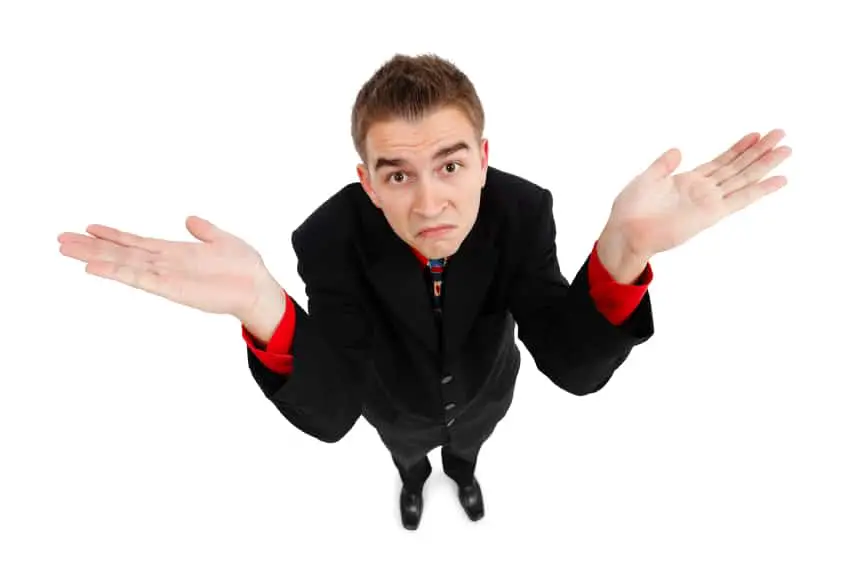
When I was 18 (most of us can probably relate) I was pretty sure I had unlocked all the knowledge in the universe (and nobody could tell me different). Turns out I was quite unaware of just how ignorant I was.
As humans, we tend to naturally fall into the trap of “illusory superiority”, which means that we are easily susceptible to the delusion of believing that we ”know” more than we really do.
According to experts, when we don’t fully understand something, we then tend to oversimplify it. But by becoming aware of what you don’t ‘”actually know’”, it puts you into an advantage over others, and in place of power and wisdom.
5. You Admit Your Mistakes And Are Able to Turn Them Into Life Lessons
No one likes to make mistakes, and failure is never the goal. But as humans, maitakes and failure is in our DNA, and there’s no escaping mistake making. Those with high self-awareness admit mistakes, apologize if they need to, learn from their mistakes, and move on.
Instead of hiding mistakes in fear, those who are self-aware accept them, acknowledge them, and try to learn from them as not to repeat the same mistake twice.
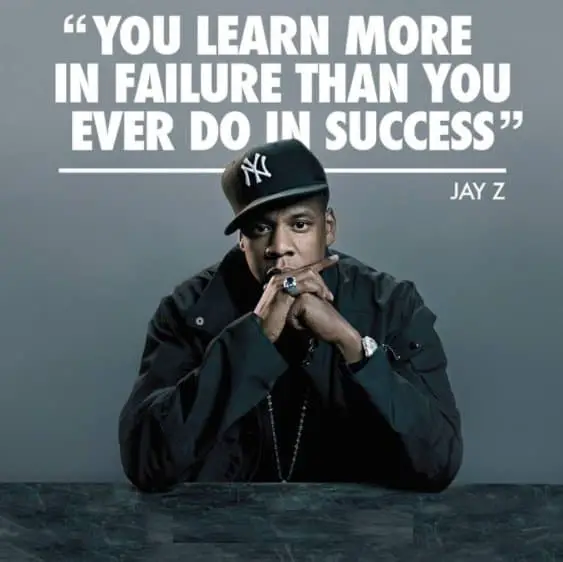
Serial entrepreneur, entertainer, and business magnate Sean Carter (aka Jay-Z), famously said that …
“You learn more in failure than you ever do in success.”
In my experience, this quote makes a lot of sense, as you can be successful by accident, and not learn why you were successful. But by failing and learning, you’ve now gained a valuable lesson.
But if you make a mistake and hide it, don’t admit it, or don’t learn from it, then you’re robbing yourself of an opportunity for a deeper level of both truth, and self-awareness.
6. You Intentionally Look At Things From Different Perspectives And Accept Others’ Opinions
The skill of widening your perspective will give you valuable insight, and give you a better ability and advantage in understanding what’s true.
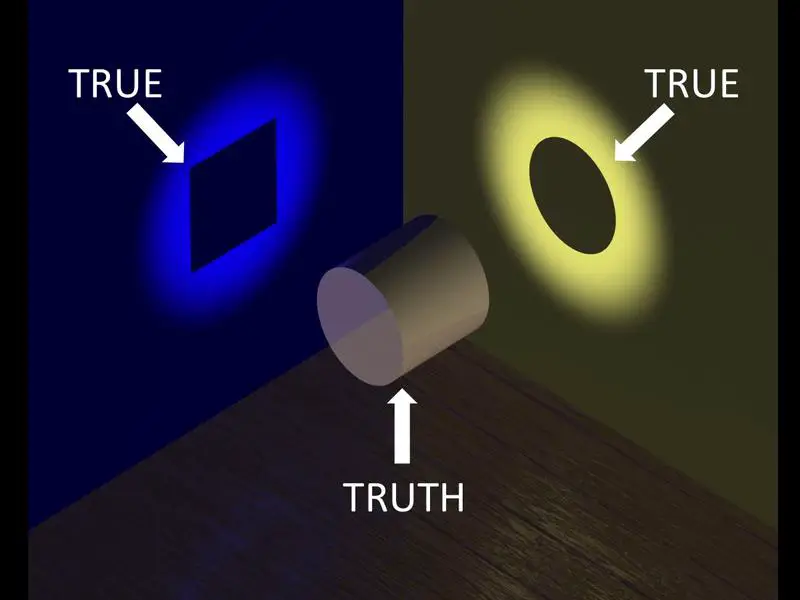
If you look at a house from only one perspective, then you’ll have a much less accurate understanding of what the house looks like, as compared to someone who looked at the same house from the front, back, inside, outside, above, ect.
The same is true for yourself and the rest of the world around you. If your self-awareness is only based on your perspective, then you’re probably less self-aware than you could be.
As most marriage counselors can attest to, there’s usually 3 sides to every situation.
- Perspective A
- Perspective B
- The Truth
It’s important (for the sake of self-awareness & sanity) to understand that your opinion is your perspective, and your perspective could be wrong.
7. You Understand Your Emotions And Openly Express Your Feelings
Business coach and TED Talk alumni, Achim Nowak, describes emotional self-awareness as taking 2 forms.
- Emotional Self-Awareness: We recognize and understand our own emotions.
- Emotional Self-Expression: We openly express our feelings verbally or non-verbally to others.
Mr. Nowak says he often observes that people score high on “emotional self-awareness”, but then score significantly lower on “emotional self-expression”.
This leaves the outside world with no idea what you’re feeling (whether you’re aware of it or not)
But, by increasing your ‘emotional self-expression’, it encourages others around you to feel open, and be free in their communication. This could include your co-workers, friends, life-partner, family, ect.
The atmosphere of open self-expression will help foster deeper relationships, deeper levels of communication, and deeper levels of self-awareness.
8. You’re Not Afraid to Ask “”Dumb”” Questions
Most people are afraid of looking dumb.
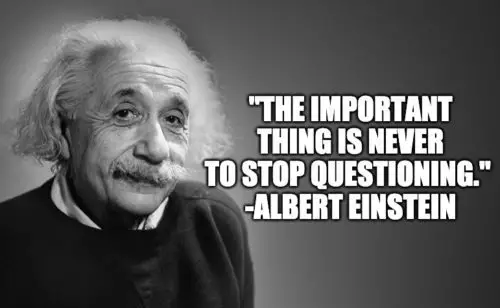
Serial entrepreneur, and businesswoman Paula Pant has found that, fear of looking dumb is actually quite common. Paula explains to Business Insider Magazine, that many people like to “save face” by pretending that they can follow a conversation (even if they aren’t following the conversation)
I’ve found myself in situations where I’ll ask a ‘seemingly “”dumb”” question’, only to find out that ‘everyone was wondering the same thing’, but they were too afraid to ask.
It’s also ironic, that the fear of looking un-wise prevents people from learning and actually becoming wise.
“Ask the questions that everyone else is afraid to ask.”
So many people waste ‘daily opportunities’ to learn, simply because they perceive “asking questions” as a sign of weakness.
By admitting that you don’t know something, and by asking questions you’ll learn more (and become more self-aware) than you ever expected.
9. You’re Not Afraid To Apologize And You Know How
Apologizing is similar to admitting mistakes, but apologizing takes your emotional intelligence a step further.
We’ve all seen those insincere, half-hearted, “”doing it for all the wrong reasons”” type apologies. Politicians have mastered these types of poor-quality apologies.
But most people can tell if you’re apology is heartfelt, for the right reasons, or if you’re apologizing for all the wrong reasons.
Apologizing is where Emotional Intelligence (EQ) is more important than Logical intelligence (IQ)
To make sure your apology ‘hits home’ and feels good for everybody, we wrote the ultimate guide to apologizing in another article which you can check out here.
10. You Are Aware Of Your Strengths And Weaknesses
I often jokingly tell people that “my biggest weakness is not knowing my biggest weakness”.
But in reality that might be more true than I realize (it’s something I’m working on).
Expert business leaders advise that knowing your strengths, enables you to focus your attention in a direction where you already excel, thus allowing yourself to aim higher and achieve much more.
While knowing your weaknesses, gives you a deeper understanding for the things that may be holding you back. By becoming aware of, and leveraging your strengths, you can then find creative ways to work around your weaknesses.
But with-out self-awareness of your strengths and weaknesses you might get stuck trying to improve your weaknesses, with-out leveraging your strengths. (This is an area where I know I need to work on.)
11. You Take Criticism Without Getting Defensive
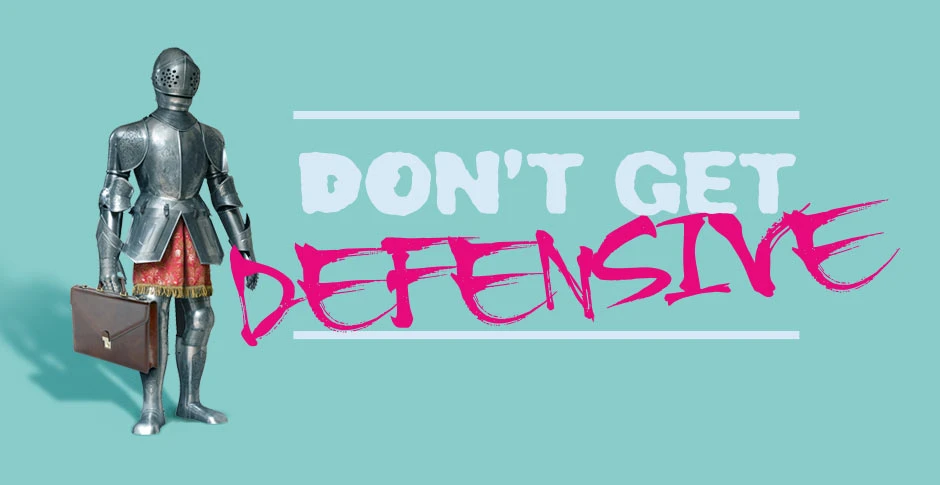
Based on my own personal experience, taking criticism ‘with-out getting defensive’ can be difficult to say the least. Getting defensive to criticism is a natural reaction, just like flinching when someone jumps out to scare you.
But, just like a ninja learns not to flinch, with practice, you can learn not to get defensive.
Career development expert Nicole Lindsay knows all too well the pros and cons of getting defensive to critical feedback.
Writing to the audience at Daily Muse Inc., Lindsey agrees that in the heat of the moment, “many of us react with defensiveness and anger or—even worse—attack the person giving feedback. But the truth is, we need to get over it.”
There’s extreme value in constructive criticism and what better way to get direct feedback and widen your perspective of awareness.
12. You’re Rarely Ever Provoked To the Point of Anger, And Usually React In A Calm and Sensible Manner
There’s an old saying by Sister Elizabeth Kenny, that…
“He who angers you, conquers you”
Sister Kenny is known as one of the original founders of modern day physical therapy in the early 1900’s, but some believe that saying can be traced back to the ancient teachings of Buddha.
Either way, the saying rings true for those who are in tune with their own self-awareness.
According to Dr. Elizabeth Wagner, Founder and CEO of ELEOS Psychology Center, calming yourself in the face of anger means learning how to avoid turning your anger inward and avoiding over-reacting outwardly.
Instead, Dr. Wagner suggests practicing calming yourself to find good balance between expressing your anger, while controlling your emotional response.
For example, try taking a deep breath to lower your heart rate, blood pressure, and calm your mind before reacting. By learning how to “control anger” instead of letting your “anger control you”, you’ll pave the way for more level-headed thoughts and reactions.
13. You Don’t Numb Your Emotions, Or Try To Escape From Them

Numbing your emotions is something we all do (or at least used to do). I personally have become ‘mostly’ aware of when I’m numbing my emotions, but I still do it anyways on occasion. (something else I’m working on)
Dealing with negative emotions is difficult, which is why there’s multiple multi-billion industries built around escaping and numbing emotions. For example, drinking, gambling, online shopping, scrolling on social media, and smoking cigarettes to name a few.
All of these behaviors are normal in moderation or with the intent of having fun, but in excess and with the intent of numbing emotions these same activities take on a completely different meaning.
We often unconsciously revert into a ‘default mode’ of some sort of “”escapism”” when it comes to dealing with negative emotions.
By becoming self-aware of the reasons behind why you might partake in some of these behaviors, you may find yourself ‘more in control’ of your life than you realized you could be.
14. You Consciously Ask For Feedback (And Take It Well)
Consciously seeking ‘critical feedback’ is similar to receiving feedback well, but this takes it a step further. Instead of just ‘tasking critical feedback’ well when it is given to you, you actively seek out and ask for critical feedback.
According to Michigan State University, asking for critical feedback is “critically” important towards helping you develop a heightened level of understanding for yourself.
You don’t have to agree with the feedback, you may 100% disagree, or you may only partially agree. Either way is fine, but the feedback is still valuable. Remember critical feedback is usually someone’s else’s perspective, and perspectives are just opinions based on life experiences.
But getting someone’s else’s perspective can help you learn about habits or traits that need to be changed, unintended impressions you are leaving with others, or work priorities you hadn’t been aware of.
15. You Don’t Expect Life To Give You Any Special Privileges
You’ve probably ran into a few people in your life with a high ‘sense of entitlement’.
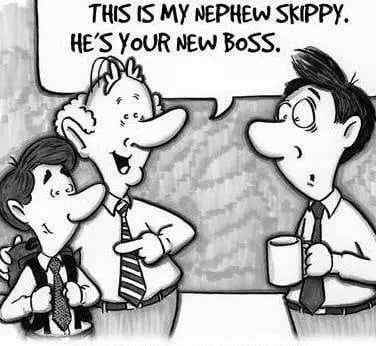
People with lower levels of self-awareness can develop a ‘sense of entitlement’ or a believe that the world owes them something, without them ever having to give something in return.
To be clear, the universe doesn’t owe anyone anything. You get what you earn.
From the perspective of clinical psychologist Dr. David Susman, “a person with a sense of entitlement has a self-absorbed view of the world and little regard or empathy for their impact on others.”
An example of this, in an extreme form, would be narcissistic personality disorder.
16. You Know You’re More Than Your Thoughts
Thoughts can be extremely powerful and trigger powerful emotions. But ultimately, thoughts can come and thoughts can go. And by practicing mindfulness, you can learn to have complete control over your thoughts.
You are more than your thoughts; you are your actions.
Substance abuse practitioner and author Greer Parry knows 1st hand how powerful thoughts can be.
Those who are truly self-aware understand deeply, that ‘regardless of the circumstance’ and regardless of the ‘specific thoughts’ that are currently ‘coloring your perception’, it’s your behavior that can either move you away, or towards the things that matter most, says Greer.
17. You Live By What’s Important To You
In order to reach the highest levels of self-awareness, obviously, you must know who you are and live life with the deepest levels of authenticity.

To be authentic, you know yourself (inside and out), the good, bad, the ugly, and…you have a strong understanding of your core values as a person.
Award-winning life coach and authenticity advocate Ritu Bhasin, says that “when we consciously engage with our values, it’s an incredibly empowering and liberating place to be. There is a lot of power in recognizing that our behavior is a choice.”
“Until you make peace with who you are, you will never be content with what you have.” ~Doris Mortman
18. You Know How To Prioritize Putting Yourself First
I’ve learned in my own life that when I don’t prioritize time for myself I’m likely to ‘burn-out’ leaving myself no energy to give my full attention to others.
The ancient Greek Philosopher, Socrates, believed that taking time for ourselves, engaging in self-compassion, and practicing self-care, are all fundamental to creating a good life for ourselves, and the people who matter most to us.
19. You Understand That You Can’t Become Who You Want To Be, If You Don’t Learn and Accept Who You’ve Been
We are who we are, and we are who we’ve been. You can’t hide from the past, but you can accept your past and change your future.
The experts at Psychology Today understand that it takes tremendous emotional and psychological energy to hold back what we’re hiding inside. For example, past mistakes, failures, mis-steps, or emotional pain.
But if we just hide from our pain and our feelings, and don’t learn from our past, it will screw up our future.
Licensed Clinical Social Worker, Bob Taibbi, describes anxiety from holding back your past like spilled water on a countertop. The anxiety from holding back spreads.
Not only do we avoid, for example, talking about some traumatic event in our childhood, we also avoid discussing our childhood at together. Not only do we hold back, let’s say, anger…, we hold back our other emotions as well.
20. You Know There’s Only One Common Denominator In All Of Your Relationships
If you find yourself struggling with multiple relationships, guess what, the problem probably isn’t everyone else.
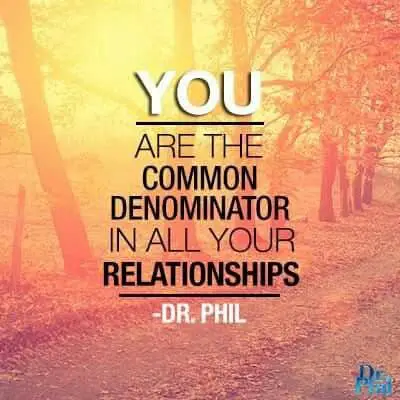
Dr. Barton Goldsmith Ph.D is an award-winning psychotherapist, author, and has spent his whole life studying relationships. In the experience of “Dr. G”, if you don’t accept responsibility for your relationships, and you are unhappy in one or more, look to yourself first.
Your relationships are a reflection of who you are. How you behave in your relationships is often a fractal behavioral pattern, and cultivating self-awareness will help you realize the common connections in your relationships, if you haven’t already.
“Relationships also give us a sense of purpose, and that too is a gift.” – Dr. G
21. You Listen More Than You Talk
A few years ago I was managing the construction of a Buddhist retreat when I met a Tibetan Rinpoche (Buddhist elder) who took a 3 year vow of silence in order to improve his listening skills and understanding for the world of the world around him.
(side note: I used to work in the commercial construction industry)
It was a $15 million dollar project, and Rinpoche (who was in his 90’s) was the man ultimately in charge of everything.
He said very little when he would walk through the construction site, but when he did speak, everyone around him (including all the various construction executives) listened intently, and moved quickly.

As a construction expert myself, I didn’t expect Rinpoche to understand construction complexities, but after a quick walk around the construction site he quickly picked up on some of the more complex issues with ease.
He didn’t say much, but he was completely aware of everything going on around him.
I learned a lot from the man who barely talked that day.
Conclusion: How Self-Aware Are You?
Self-awareness isn’t a task like “”installing a new washing machine””, where you do it once and you’re good for the next few years.
Self-awareness is more like “”cleaning your clothes””, where it’s an ongoing process that you ‘rinse and repeat’ day-in and day-out.
It’s a process. Life keeps happening around you, and your awareness towards what’s happening needs to keep up. By practicing some or all of the self-awareness habits about, we hope you’ll be able to cultivate a stronger level of self-awareness and build a strong foundation for your future self.
Let us know your thoughts on the topic of self-awareness.
Also, for more on self-awareness, check out our complete guide with 40 ADDITIONAL tips to identify self-awareness.
Loved what you read?
Hit that share button and let the world in on the secret – we’d be thrilled!
Got thoughts? We’re all ears for your feedback, corrections, or a good old chat. Don’t be shy; drop us a line.
And hey, don’t miss out on our curated list of must-reads in the recommended books section.
Big thanks for diving in with us today!



